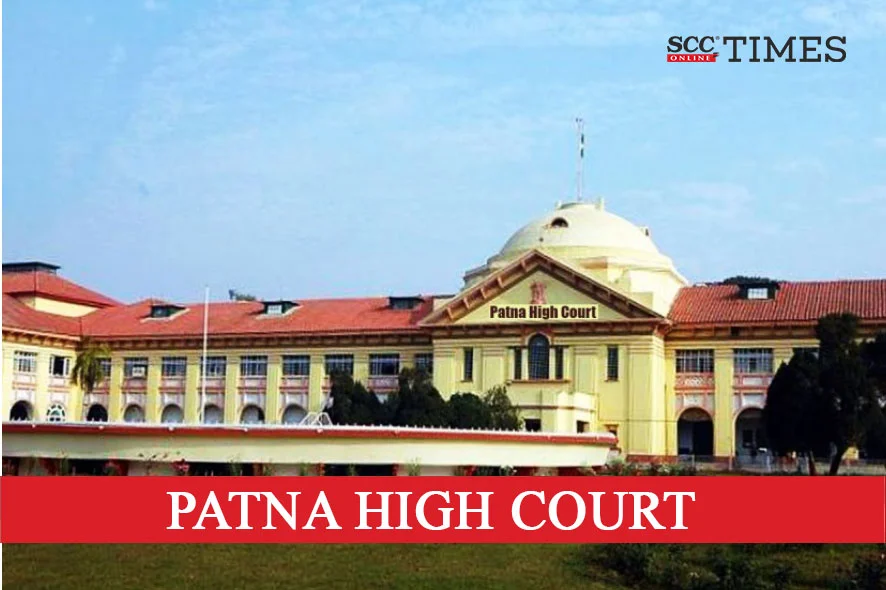Patna High Court: In a petition filed by the accused police officer against an order denying discharge under Section 245 of the Criminal Procedure Code (‘CrPC’) for offences punishable under Sections 341, 323, 504, 506, and 34 of the Penal Code, 1860 (‘IPC’), the Single Judge Bench of Chandra Shekhar Jha, J., placing reliance on G.C. Manjunath v. Seetaram, (2025) 5 SCC 390, and D.T. Virupakshappa v. C. Subash, (2015) 12 SCC 231, and observing that allegations of misconduct against public servants, even if exceeding official duties, remain protected by Section 197 of the CrPC if a reasonable nexus exists between their discharge of official functions; and quashed the complaint against the accused police officer.
Background
The complainant claimed that the accused police officer, along with his associate police personnel, came to her home when her husband was not present. They allegedly forced their way inside after she initially refused them entry. The accused allegedly grabbed her hands, pushing her against a wall and injuring her. She further alleged that the accused had ordered others to lift her, during which he snatched her gold chain. When her mother-in-law intervened, she was also thrown to the ground and injured. Finally, the complainant claimed she was taken to the police station, illegally detained, and subjected to cruelty. The complainant alleged the commission of offences under Sections 147, 342, 341, 323, 354, 506, 504, 379, 337, 338, 448, and 34 of the IPC against her. The accused police officer has filed the present petition against the order denying discharge under Section 245 of the CrPC.
Analysis vis-à-vis prior sanction under Section 197 CrPC upon overreach of official duty
The Court relied on G.C. Manjunath (Supra) wherein the Supreme Court while referring to the decisions in D.T. Virupakshappa (Supra) and D. Devaraja v. Owais Sabeer Hussain, (2020) 7 SCC 695, had held that if a police servant goes beyond his official duties while doing his job, he still have a protective shield under the law as long as there is a reasonable nexus between the impugned act and the discharge of his official functions. It has been categorically held that transgression or overstepping of authority does not, by itself, suffice to displace the statutory safeguard of requiring prior government sanction before prosecuting the public servant concerned.
The Court further relied on D.T. Virupakshappa (Supra) wherein the Supreme Court while referring to its decision in Om Prakash v. State of Jharkhand, (2012) 12 SCC 72, had held that the protection under Section 197 of the CrPC is designed to shield responsible public servants from potentially harassing criminal proceedings for actions taken in their official capacity. The aim is to ensure they are not prosecuted without good cause for duties performed. This protection is not absolute. It is only available when the alleged act is reasonably connected with the discharge of his official duty and is not just a ‘cloak’ for doing something wrong. Even if a public servant acted in excess of his duty, if there is a reasonable connection between the act and performing his official duty, that excess is not enough to deny the protection. The key is not the type of offence, but whether it was committed by a public servant acting or purporting to act as such in the discharge of his official capacity. For Section 197 to apply, the official must be accused of an offence committed while they were performing their official duties. It is the quality of the act that is important, and the protection applies if the act falls within the scope and range of his official duty.
The Court observed that in the present matter, the accused and his associate personnel were discharging their official duty, and therefore, sanction for prosecution was mandatorily required under section 197 of the CrPC. However, the complaint case had been dragging on for an excessive four years without significant progress, which raises serious concerns about the fairness of the proceedings. The Court further noted that the original case against the complainant and her husband had culminated in their conviction for offenses under Sections 341 and 323 of the IPC.
The Court noted , “A mere excess or overreach in the performance of official duty does not, by itself, disentitle a public servant from the statutory protection mandated by law”. The safeguard of prior sanction under Section 197 of the CrPC cannot be disregarded merely because the acts alleged may appear to go beyond the strict bounds of official duty, so long as they are reasonably connected to the discharge of official functions.
The Court pointed out that allegation levelled against the accused also did not appear grave in nature, and the same cannot be said to exceed the limit; furthermore, even the injury report did not support the allegation”.
The Court, relying on the decisions in G.C. Manjunath (supra) and D.T. Virupakshappa (Supra), quashed the complaint case against the accused police officer.
[Abhay Narayan Singh v. State of Bihar, 2025 SCC OnLine Pat 2224, decided on 18-06-2025]
Advocates who appeared in this case :
For the petitioner: Rana Vikram Singh, Kumar Ravish, Rohit Kumar, Advocates
For the respondent: Mithlesh Kumar Khare, APP, Sikandar, Pramod Kumar Yadav, Neeraj Kumar, Pinki Kumari, Advocates



They can strech every illegal showing connected to official duty and get exempted. They are bound to realize rights of citizen in time bound manner but keeping citizens to test fruits of their efforts indefinetly saying it is official duty . This is incorrect this is protection to corruption